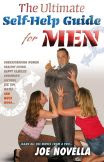Firstly let me say an enormous thanks to Shannon and Kisatrtle for reading my blog. I am truly honoured.
Everywhere I look at the moment, and maybe because I have a heightened sensitivity to it due to story that is forming in my head, I see and hear people extolling the virtues of new age spirituality, of modern day guides: The celestine philosophy, The secret, the works of Eckhart Tolle, just to name a few.
Tolle is now a household name due mainly in part to Oprah and the online classes discussing his work. I have read his latest and many other works by philosophers new and old when I felt my mind becoming receptive to the ideas of happiness and meaning in the modern world.
I have no doubt that the teachings of spiritual leaders and philosophers help many to find happiness. But I also wonder if it is sustainable, will the works of some of these teachers still be mentioned in years to come or are they cyclical? Do they hold the same value to all or are they simply products of the western world's desire to get away from the 'rat race'? How does "the secret" help a starving child in Africa? How does "living in the now" help a family that is starving with no money? Would significant human achievements like those of Martin Luther King have happened if the man did not have a vision for the future?
Physicists search for unification. The unifying law that brings together the various theories: string, quantum, relativity... and unites them all in an single unquestionable truth.
Do we have a single unifying law for the soul and spirit?
John Lennon famously said "all you need is love." Is that true? Can serial killers love? Dictators bent on shaping the world in their own image, are they capable of love?
Is faith that unifying law? God? And is he for everyone?
What is that single undeniable truth for happiness? Is there just one? Is there any?
All these questions form a maelstrom of ideas, doubts and questions in my mind. My mind is set on a track to write this book and Raymond Figg has appeared in my head. But writing is not a start at A finish at B process. My mind having focused on the theme of my story now begins to explore all the tangents and in the maelstrom, seeds begin to be planted. I feed them with information relating to the story I want to write and the seeds begin to germinate, their young and delicate shoots are buffeted by the winds of the maelstrom - but the seedlings have taken hold and they are strong.
One of these seedlings is Captain Angus Cargill. The maelstrom in my mind ceases and clarity sharp and vivid takes over. I see the Captain sitting on his boat. He is weather worn and ancient, wisps of white hair float around his head on the gentle sea breezes. His boat seems in a similar state of disrepair, detritus strewn all over its deck. He looks at me with eyes that are sharp and strong but full of sorrow. "It is time for me to go," he says. "Where?" I ask. "I wish to go to my love." A solitary tear rolls down his cheek. "Where is your love?" I ask. "She rests with the seals," he replies. I notice the name of his boat "The Selkie". The legendary seal people of Ireland and Scotland. "That's impossible," I say. He looks at me and through his eyes I see his will begin to fall apart. "You are right," he says. "But not because I do not ever have faith but because my body fails me and I cannot ready this ship for my last voyage."
I am not sure what to say to him, his sorrow has touched me. "She," he begins, "was my soul's partner." He looks away. "With her last breaths, she took my hand and kissed it, 'I love you Angus Cargill' she said to me, 'keep me in your mind and have faith that I will be near you always, in the sea that you love, with seals that we both loved.'" The captain seems to have become older in front of me with the burden of his sorrow. "I've failed her memory," he says. "This boat will not be ready and I have lost my strength and my faith." He looks back to me and the fire and intensity has returned to his eyes. "So it is time for me to go, maybe you can help me young man. If you cannot I will go of my own accord, I have had a good life, travelled the world, met many people, I have loved and learned but now there is nothing left for me here."
I don't know what to say, the captain's image stays fixed in my mind and I feel a ball in my throat at his plight. "You can't go," I scream in my mind's eye. "You can't. You still have so much to give." The Captain looks at me with a mixture of hope, confusion and sorrow. "I am old and beaten," he says, "I have nothing left for you." I physically shake my head even though my conversation with the captain is happening in my imagination. "NO YOU CAN'T GO ANGUS. I have someone for you to meet," I say. "Raymond Figg is his name. He needs you. And you need him. Please."
The Captain of the Selkie nods. I am mentally exhausted but happy.
Raymond Figg wants to talk, he has something to tell me about his father. I don't have the energy. I need to go outside and see the world. Talk to people of flesh and blood.
Joe.
Subscribe to:
Post Comments (Atom)



3 comments:
Joe, I am enjoying your blog. The captain is such a powerful character. I'm jealous of your imagination. Thanks for signing my guestbook
Maybe it's partly because serial killers and dictators don't have love/the ability to love that they do the things they do. Maybe Lennon was right, but that not everyone gets what they need, and that is one of the cruel things about this world. Well, you know me, an eternal romantic.. And the one thing I've found to believe in in this world so far is the power of love. Be it between boyfriends and girlfriends, old friends and new friends, husbands and wives or fathers and sons. As long as we have love in our lives we are blessed.
I look forward to making the captain's acquaintance!
Oooh. Where to start?
OK - Do Serial Killers and Dictators love? I would say they absilutely do - only their love is of and for things that right minded people would feel abhorrent. A dictator's primary loves might be power and themselves rather than another human being. Serial killers might love the criminal act that labels them, they might love the belief that leads them to that act (eg the Yorkshire Ripper was convinced he was doing god's work when murdering prostitutes) or they might love the secret double life that they seem to lead. That their loves are unspeakable to most people doesn't matter to them. Controversially, how powerful is the love of their god or cuase that allows a suicide bomber to blow themselves to bits?
It's not love as you and I might define it but is it not love of a kind?
provided I've not offended everyone too much already, I'll come on to Captain Cargill. On the first draft I got the impression he was more at peace with his world than the angst ridden character you describe Joe. My mental picture of him was more of a wordly wise character who, though sad at his loss, had a kind of peace about him. Maybe it was resignation to his fate. I don't quite know. I saw his relationship with Raymond as being somewhat symbiotic. They were both missing something but could be guided towards it by the other - physically or emotionally. I'll be interested to see how it all develops.
Post a Comment